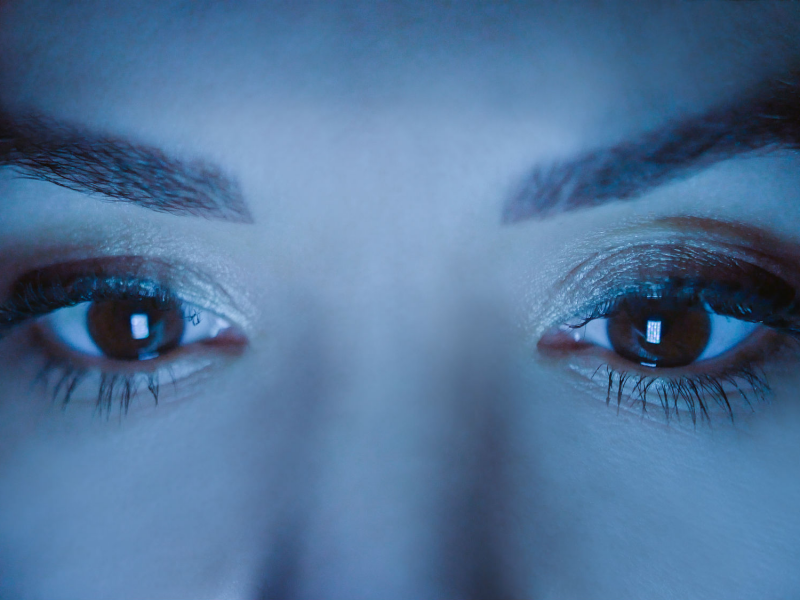- The brain is the most complex organ in the body.
- Scientists think that human brains are actually shrinking over time.
- Contrary to the popular myth, you actually do use most of your brain.
- Your brain can’t actually feel pain.
- The part of your brain that lets you see is actually nowhere near your eyes.
You use your brain all day and night, but how much do you really know about it?
Scientists have been trying to unravel the mysteries of the human brain for centuries, and they’ve uncovered some pretty fascinating stuff about how our grey matter really works.
Here are a few truly incredible facts about the human brain.
The human brain isn’t actually fully mature until age 25.

According to the University of Rochester Medical Center, our brains don’t really finish growing up until we’re about 25 years old.
Recent research suggests that people younger than 25 often process information with a part of the brain called the amygdala, which is the part of the brain involved in managing emotions.
In contrast, people over 25 tend to use their prefrontal cortex, which is the seat of rational decision-making and judgment. Scientists believe that important connections between these two areas of the brain aren't fully formed until our mid-twenties.
Scientists think that human brains are actually shrinking over time.

As University of Wisconsin anthropologist John Hawks explained to Discover magazine, human brains have actually lost about 150 cubic centimeters over the past 20,000 years - that's amounts to a chunk the size of a tennis ball.
Scientists aren't totally sure why our brains are getting smaller, but some think that as our bodies and nervous systems became smaller, our brains sized down to match. Others believe that the shift has more to do with lifestyle and habitat changes.
The human brain is mostly water and dehydration can make it work poorly.

Need another reason to stay hydrated? The human brain is mostly made of water. In fact, your brain is roughly 75% water and contains about 2% of the total water in your body. If you were to put your brain on a scale, it would weigh about 3 pounds. Disturbingly, being dehydrated by just 2% can impair your attention, memory skills, and other cognitive functions.
Your brain can't actually feel pain.

According to brain injury resource Brainline, there are no pain receptors in the brain itself. That means that the brain can't actually feel pain the way your skin or muscles can, though the brain is the organ we use to detect and interpret pain.
In fact, according to Stanford University, neurosurgeons don't apply anesthesia to the brain during surgery and patients are often allowed to be awake.
However, there are pain receptors on your scalp, as well as on the coverings around your skull and brain. This is why being hit on the head may cause pain.
Extreme dieting may lead your brain to eat itself.

If you feel like your brain is trying to sabotage your dieting efforts, you might be right.
Scientists have discovered that not eating enough can trigger something called "starvation-induced autophagy" in the brain. Essentially, brain cells that aren't getting enough energy from food begin to eat themselves in order to release fatty acids. When that happens, the report suggested that the brain cranks up hunger signals that boost appetite and the desire to eat.
Though some amount of autophagy is actually important to keep the brain running smoothly, long-term malnutrition could have a negative impact on the brain.
The part of the brain responsible for memory is significantly larger in taxi drivers.

There's no app that can replace the knowledge and memory of a good cab driver, as scientists from University College London discovered.
When they scanned the brains of regular people and compared the results to brain scans of London cab drivers, the researchers found that the cab drivers had much larger hippocampi.
The hippocampus is the part of the brain responsible for learning and memory. The process of learning to navigate around the complex streets of London had literally altered the brains of the drivers.
The part of your brain that lets you see is actually nowhere near your eyes.

Though it might seem counterintuitive, the part of your brain that allows you to see is actually about as far away from your eyes as possible.
Your occipital lobe is irresponsible for pressing visual information and is away tucked at the back of your brain. For this reason, a traumatic blow to the back of the head can sometimes result in blindness even if the eyes themselves aren't injured.
Contrary to the popular myth, you actually do use most of your brain.

There's a popular myth that humans only use 10% of their brains. According to science, that's not the case.
A study published in Frontiers in Human Neuroscience debunked the claim that only a small fraction of our brains are working. In reality, most of our brains are working most of the time. Even while sleeping, our brains are hard at work.
When musicians play together, their brain waves synchronize.

It turns out that making music together might have a measurable effect on our brains. By hooking up guitar players to electrodes, researchers at the Max Planck Institute for Human Development in Berlin discovered that the brainwaves of musicians synchronize when playing duets.
Even when both people played different parts, their brainwaves and neurochemicals seemed to be in sync. These findings suggest that our brains might be even better at understanding and predicting the world around us than we thought.
Some blind people are able to "see" out of their ears.

According to a study by the University of Montreal, the brain can actually rewire itself in some pretty cool ways.
When researchers looked at the brain activity of people who had been born blind, they found that the part of the brain that's usually responsible for vision can actually shift gears to process sound information.
This means that blind people may "see" sounds in the same part of their brain that sighted people use to tackle visual information.
Your brain activity is as unique to you as a fingerprint.

Using a scan called a fMRI, scientists have been able to identify individual people by looking at their brains.
By examining the brain activity of more than 100 people, researchers discovered that a person's brain activity is as unique as a fingerprint. In the future, this information could be used to tailor neurological care to each patient.
Visit INSIDER's homepage for more.











